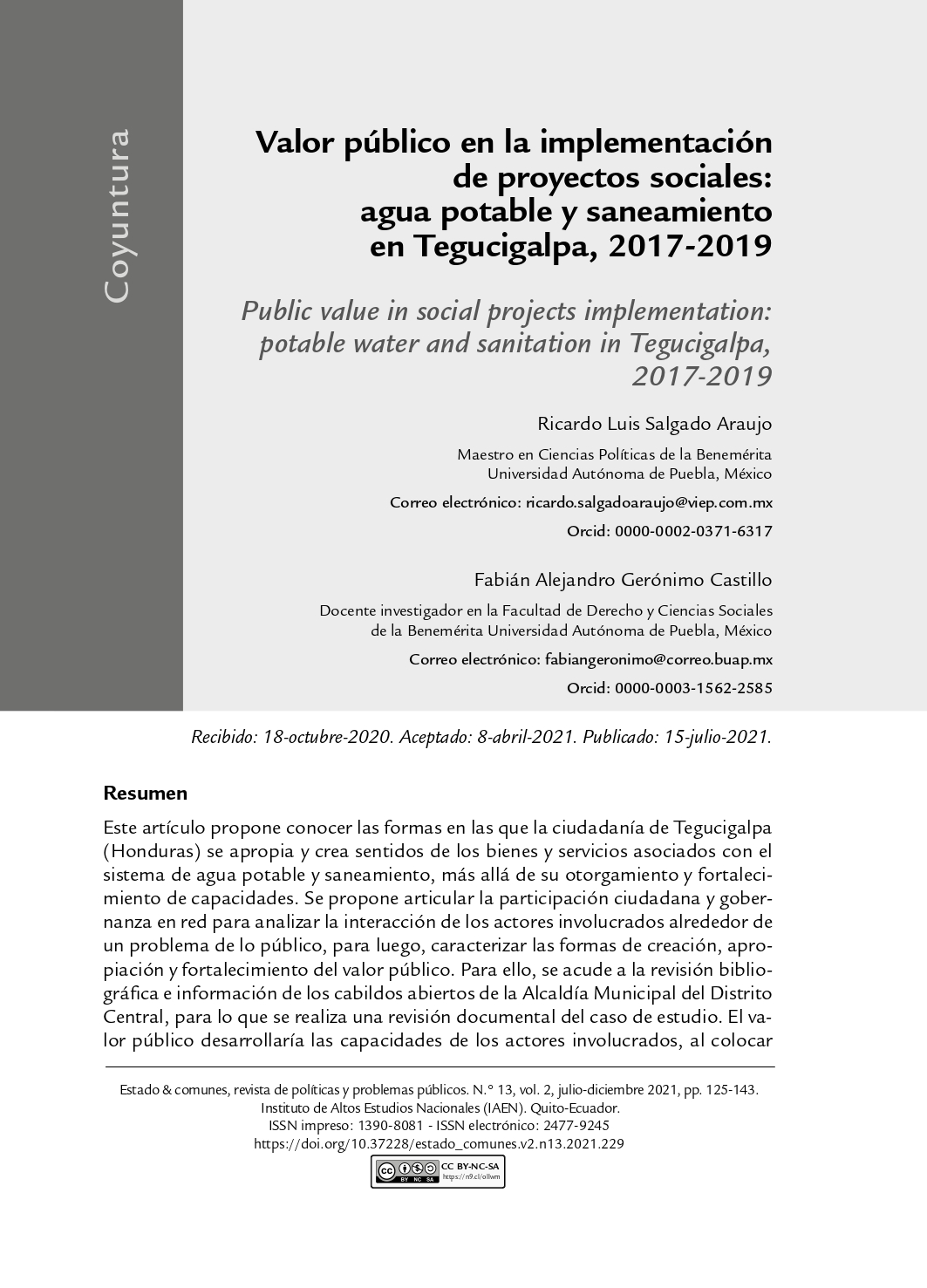Public value in social projects implementation: potable water and sanitation in Tegucigalpa, 2017-2019
Main Article Content
Abstract
This article studies how the citizens of Tegucigalpa (Honduras) appropriate of and give meaning to goods and services of the drinking water and sanitation systems. This paper approach goes beyond provision and capacity building, and it proposes to articulate citizen participation and network governance to analyze the interaction of the actors involved with a public problem and to characterize the forms of creation, appropriation and strengthening of the notion of public value. This study carries out a bibliographic review and gathers documentary information from the Mayor's Office in the Central District open councils. Finally, this article sustains that public value develops the capacities of involved actors and highlights the multiple ways in which citizens access benefits within a decision-making process based on their own expectations.
Downloads
Article Details
How to Cite
Issue
License
Copyright (c) 2021 Ricardo Luis Salgado Araujo
CC BY-NC-SA. This license allows sharing, copying, distributing, performing, and publicly communicating the work, as well as creating derivative works.











